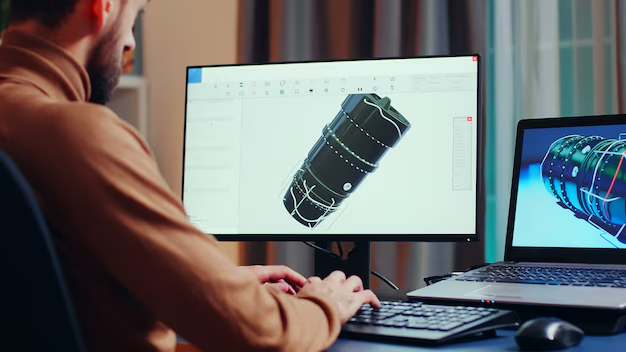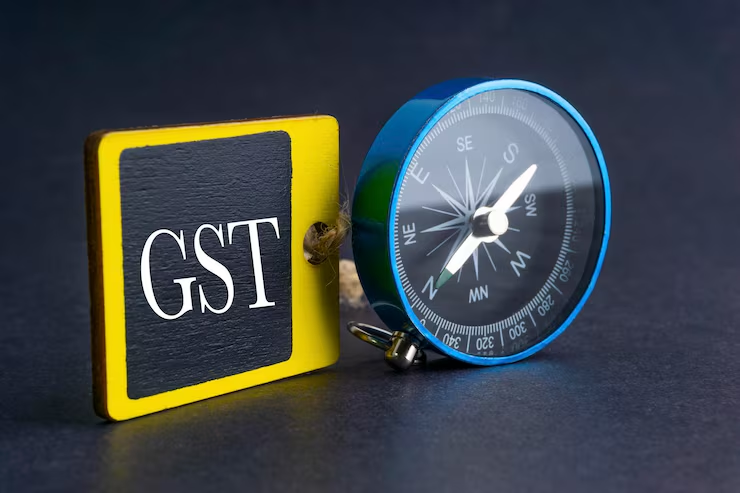
What Is Scrolller?
Scrolller (often spelled with three “l”s: Scrolller) is a web-based (and partially PWA) content aggregation platform that presents users with a continuous, randomly generated feed or gallery of images and videos. Its tagline is something like “Explore millions of awesome videos and pictures in an endless random gallery.” X (formerly Twitter)+1
In effect, Scrolller functions somewhat like a visual “infinite scroll” browser for content — you don’t click on categories or menus; you simply scroll through a stream of media that the site aggregates from various sources (largely Reddit and other image/video hosts). It’s meant to be a passive, discovery-style experience: you don’t always know what comes next, but you might stumble on something interesting.
On mobile, many users treat it like an “app” — technically it’s a Progressive Web App (PWA) or installable from the browser, so it can behave more like an app on your device, though it’s not always listed in app stores. Reddit
How Scrolller Works (or, at least, appears to work)
Because Scrolller aggregates existing content largely from public sources (especially Reddit), its backend must include:
- Crawling or scraping of image / video content from Reddit, image boards, media hosts, etc.
- Filtering / classification / tagging to categorize content into themes or enable search.
- Randomization / ranking logic to decide what content to show next in the infinite feed.
- User interface for infinite scrolling, optimized for speed and media display.
- Monetization and access controls — for example, it can restrict downloads or require a subscription for certain features.
Some technical observations and user reports highlight constraints and bugs. For example:
- A known bug: when using tools like gallery-dl to download albums from a Scrolller page, often only the first image of an album is downloaded. GitHub
- There is a userscript / adblock extension ecosystem around Scrolller to suppress premium paywalls and ad popups. GitHub
- Some users report that the site becomes “not usable” under certain browsers (e.g. Firefox Mobile on Android) due to security certificate issues or browser compatibility problems. GitHub
From a user perspective, the appeal is in its frictionless, “just scroll and see” experience. You don’t have to think about categories, search, or feeds — you just browse.
Why People Use Scrolller
1. Serendipitous Discovery
Because the feed is randomized (or semi-randomized), you might come across content you never would have searched for intentionally. That element of surprise can be addictive and entertaining.
2. Visual, Minimalist Experience
The UI is clean — mostly full-screen images/videos, minimal chrome or clutter. It’s meant to let content “speak” without distractions. Scrolller
3. Access to Vast Content
Scrolller aggregates content from many subreddits and host sites. So rather than navigating to individual subreddits, forums, or image boards, you can see many sources in one place.
4. Low Effort / Passive Browsing
Unlike social media where you have to follow, like, comment, or curate, Scrolller emphasizes the passive experience — just scroll, no commitment.
Criticisms, Risks & Controversies
Scrolller is not without its controversies. Several serious issues deserve attention.
Copyright and Artist Rights
One of the gravest critiques is of copyright infringement and unauthorized monetization. Some artists have accused Scrolller of hosting their works without permission, then monetizing through downloads or paywalls. Life Pixel IR+1
One blogger reported discovering his infrared photography being labeled under “Infrared Porn” on Scrolller and a demand (or push) to pay for downloading it — all without his knowledge. Life Pixel IR+1
This raises serious ethical and legal questions: does Scrolller properly vet content rights? Are they obtaining licensing or permissions? If not, they risk copyright claims.
Mixed / Adult Content Issues
Because Scrolller curates from many sources, there’s a possibility that adult or NSFW content is intermingled with safer media. This raises concerns, especially for users who want a “clean” feed or for minors. Some content creators also report their works ending up near explicit content, undesirably. Life Pixel IR+1
Monetization Opacity & Download Restrictions
Some features such as download capabilities are behind paywalls or restricted, which, combined with content of uncertain provenance, makes users uneasy. The fact that some images are locked behind paywalls, despite the creators not consenting, is a serious red flag. Life Pixel IR
Site Reliability, Compatibility, & Usability Issues
- Browser compatibility issues have been reported. GitHub
- The site sometimes behaves erratically or is reported as “not usable” in certain browsers. GitHub
- Some users have complained that certain albums only partially load or only the first image shows. GitHub
Trust / Safety & Legitimacy
On the surface, some domain review services conclude that Scrolller is “legit and safe.” ScamAdviser However, that judgment is mostly based on technical and surface metrics (SSL, domain age, traffic) rather than content legality or ethics. The presence of controversy about copyright means “safe” in the typical sense does not guarantee trustworthiness regarding content rights.
Comparing Scrolller to Other Platforms & Alternatives
Because Scrolller is a content aggregator, it invites comparison with other platforms or services that provide image/video browsing, discovery, or social sharing.
Some alternatives include:
- Reddit — Since many Scrolller contents originate from Reddit, using Reddit directly offers more control, community interaction, and source context. Wbcom Designs
- Imgur — For image hosting and discovery, with better moderation, user tools, and social features. Wbcom Designs
- 9GAG — Meme and viral content hub, similar scroll/visual model. Wbcom Designs
- Pinterest — For more curated, interest-based discovery (DIY, fashion, art). Wbcom Designs
- Tumblr — Combines blogging + multimedia communities.
- Bored Panda, DeviantArt, etc. — For more “editorial” or artist-centric discovery.
Because Scrolller is mostly passive and randomized, the tradeoff is that you lose control, context, and often the ability to interact or see source attribution cleanly. Many alternative platforms emphasize community, attribution, or curation, which can be more respectful of creators’ rights.
Tips for Responsible Use (for Users & Creators)
Given the pros and cons, if you decide to use or interact with Scrolller, here are some tips and considerations:
For Users / Browsers
- Use adblockers or script blockers, or opt for reputable userscripts to suppress unwanted popups or premium gating. (Some already exist for Scrolller) GitHub
- Be cautious with downloads — check if an image is licensed or if the uploader holds rights.
- Use browser privacy / VPN if you are uncertain about content safety (especially due to adult or questionable content).
- Report copyright abuse if you find your own work is hosted without permission — contact site admins or issue takedown notices.
- Prefer direct sources — for images or content you like, try tracing back to the original uploader or subreddit to see attribution/context.
For Creators / Photographers / Artists
- Monitor for unauthorized use — use reverse image search tools to discover copies on Scrolller.
- Issue DMCA takedowns or legal notices if possible.
- Use watermarking or “signature” overlay on your published work to discourage misuse.
- Avoid relying on Scrolller traffic as legitimate attribution is murky; instead promote your work via trusted platforms.
- Educate your audience about how your work should be shared — e.g. encourage sharing with source links, proper attribution.
The Ownership / Business Side & What’s Known
One interesting tidbit: one blog post claims that “Twitter bought Scrolller in 2021.” Dan Wampler Digital Art That’s a serious claim. However, that claim is contested or unverified. (I could not find a definitive, credible source confirming that Twitter formally acquired Scrolller.)
If such ownership is true, it would raise more serious questions about platform responsibility, moderation, and legal liabilities for hosted content.
From domain review services, Scrolller has a moderately good trust score, based mainly on domain age, SSL, website traffic, etc. ScamAdviser But that does not speak to the ethics or legality of content used.
In communities, Scrolller remains somewhat mysterious. Many users describe it as spontaneously “appearing” as an “installable app” from the browser, rather than via a conventional app store. Reddit Its model seems more “content feed aggregator + paywalls + download gating” rather than a fully social platform.
Challenges & Future Outlook
Legal & Regulatory Risk
Because copyright law is stringent, if Scrolller continues to host content without proper licensing or attribution, it is vulnerable to legal action from creators. More aggressive scrutiny might come from organized artist groups, agencies, or platforms pushing for safer copyright compliance.
Moderation & Content Safety
As aggregation grows, the chance of harmful or illegal content appearing increases. Scrolller must improve moderation, filtering, and human oversight to prevent defamatory or illicit content from surfacing.
Reputation & Trust
Reports of misuse (e.g. charging for unauthorized downloads, mixing adult content with creative art) damage credibility. Scrolller will need to rebuild trust with creators if it hopes to become sustainable and respected.
Technological Improvements
Better browser compatibility, faster loading, smarter algorithms (e.g. filtering, user preference, or “safe mode”) would help. Fixing bugs such as incomplete album downloads (only first image) is also necessary. GitHub
Possible Business Models
- Licensing agreements with artists and creators to share revenue properly.
- Freemium models: free browsing, paid premium features (downloads, filters, better feeds).
- Partnership/collaboration with content platforms (Reddit, image hosts) for API access or attribution.
Conclusion
Scrolller is a fascinating yet controversial experiment in content aggregation — a site that offers a minimalist, visual, infinite scroll experience for discovering images and videos from many sources. Its appeal lies in serendipity, low effort, and access to a vast pool of media.
However, that very model carries risks: copyright infringement, lack of attribution, paywalls on works from creators without permission, mixed content safety, and usability issues. Artists and creators must be vigilant, and users should use the site carefully and ethically.



















